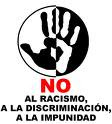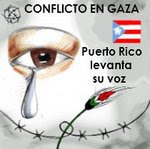EDITORIAL: Puerto Rican run
The deck is stacked for statehood
By THE WASHINGTON TIMES
Rigging an election is nice work if you can pull it off. That's what the Democratic majority in the U.S. House of Represen-
tatives appears to be trying to do as it votes next week on the misleadingly named Puerto Rico Democracy Act, which is designed to confer statehood on the island commonwealth by hook or crook. The bill is wrongheaded on so many levels that opponents in the Senate ought to filibuster it to death if it passes the House, as expected.
Since being formed as a commonwealth in 1950 under a self-drafted constitution, Puerto Rico has enjoyed a special status with a degree of autonomy. Since 1976, it has enjoyed the unique advantage of offering tax-free profits to American companies that do business there. Occasional plebiscites have been held asking island residents if they wanted statehood instead of their special status, but voters rejected change each time. The statehood option garnered just 46.3 percent and 46.5 percent of the vote in the last two attempts, the most recent in 1998. But because Puerto Rico leans heavily Democratic, congressional Democrats pine after the two new senators and perhaps six new House members who would be added to their caucus if statehood passed.
The Democrats' solution is ingenious - and underhanded. The new bill would call for a two-stage vote rather than a straightforward one.
Past elections have shown that commonwealth status is favored directly over statehood, directly against independence and directly against some sort of hybrid arrangement. Yet among all four options, commonwealth support appears to enjoy only a strong plurality, but maybe not an absolute majority. Presto: The Democrats' scheme is to first hold a vote with just two options: commonwealth on one side, anything else on the other. If supporters of all three other options ban together, they might vote to rule out the commonwealth without knowing what would replace it.
Only if and when that first vote succeeds would a second vote be held to determine which of the other three options would apply - with commonwealth status off the table.
To stack the deck even more, the House bill would explicitly allow people to vote in this election who were born in Puerto Rico but no longer live there. Nothing appears to bar somebody from voting on statehood while being a registered voter of, say, New York or Rhode Island or even the District of Columbia.
To be sure, if Congress passes this bill and the Puerto Rican (and former Puerto Rican) voters choose the statehood option, Congress still would control the ultimate decision to make the island a state. But the thought is that if Puerto Rico sends a full delegation claiming official status and the (false) legitimacy of a (tainted) popular vote, a Democrat-majority Congress would seat the delegation in an instant.
From the standpoint of the rest of us mainlanders, major problems present themselves. Most important, Puerto Rico does not consider English its sole official language of government, and islanders predominantly speak Spanish. No non-official-English state has ever joined the union, and for good reason. As Canada's experience shows, official bilingualism almost inevitably leads to discord and balkanization.
There's nothing wrong with letting a free people occasionally reanalyze their governing status. Everything is wrong with dishonoring that free people by rigging the very democracy statehood is meant to celebrate.
viernes, 26 de febrero de 2010
Suscribirse a:
Enviar comentarios (Atom)



















No hay comentarios:
Publicar un comentario